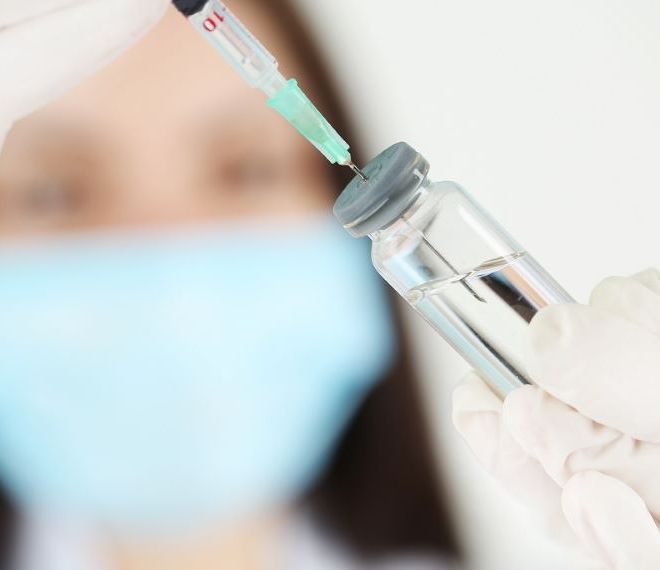Protect against meningitis!

What is meningococcal meningitis?
Meningococcal meningitis is an infectious disease of the brain and spinal cord caused by the bacterium N. meningitidis. There are 12 known serotypes of the bacterium. In Hungary, mainly the so-called B and C serotypes cause diseases, in recent years the B-serotype was responsible for 60% of infections. Meningococcal meningitis is a rare disease in Hungary - 2-3 cases occur per million inhabitants per year - but its course is very serious.
It is difficult to recognize the infection in time, as the initial symptoms are non-specific: flu-like illness, fever similar to the symptoms of a cold, sore throat, headache, muscle pain, depression, and nausea may occur. Special, so-called meningeal arousal symptoms such as sedation, drowsiness, confusion and even convulsions develop later. Once in the bloodstream, the pathogen can cause septicemia, causing severe shock within 12 hours of the initial symptoms, as a result of which approximately 15-20% of patients die of the infection despite appropriate antibiotic treatment.
Many complications and disabilities may occur in cured patients, such as hearing loss, vision loss, memory loss, loss of balance, coordination problems, brain damage, kidney damage, neurological or mental problems, paralysis, amputations, severe skin damage. The infection spreads from person to person through droplet infection, i.e. through close contact (coughing, sneezing, kissing), primarily among people living in the same household.
Who are at risk of group B meningitis infection?
The disease can also occur among those who are otherwise healthy, but are at increased risk:
- infants under one year of age
- Adolescents between the ages of 16 and 23, young adults, university students
- soldiers
- immunocompromised, chronic disease sufferers
- healthcare workers
- international travelers
Who is the vaccine recommended for?
The vaccine can be given at any age over 2 months of age.
Based on the 2016 recommendation of the National Epidemiological Center, vaccination can be recommended primarily for infants and children under the age of two in order to ensure individual protection, but vaccination of preschool children and adolescents should also be considered. The vaccine is also recommended for children and adults who are at increased risk of invasive Meningococcal disease due to their underlying disease or health condition (e.g. those with spleen deficiency).
Are there any contraindications to vaccination?
All vaccinations are contraindicated in case of febrile illness, in which case you have to wait until the vaccinated person recovers. Vaccination requires individual consideration in immunocompromised persons, in the event of bleeding, and in the event of a severe allergic reaction following a previous vaccination. There is not enough experience regarding the vaccination of pregnant women, their vaccination is recommended if it is clearly beneficial due to the risk of infection. Administration of the vaccine is absolutely contraindicated in case of sensitivity or allergy to any component of the vaccine.
Does the vaccine have any side effects?
Like all medicines, vaccinations can have side effects. After the vaccination, more than half of the vaccinated experience a mild vaccination reaction, in which the symptoms can last up to 3-7 days. These symptoms may include: pain, redness, swelling at the injection site, feeling tired or exhausted, headache, muscle or joint pain, drowsiness, irritability, mild fever or chills, nausea or diarrhea. A common reaction is a skin rash, occasionally high fever, rarely itchy, peeling skin, swollen neck lymph nodes.
How many vaccinations are required to achieve protection?
After the administration of a vaccine, protection lasts for approximately 2-3 years, which period can be extended by administering repeated vaccinations.
According to domestic recommendation:
- In the case of a series of vaccinations started between the ages of 2-5 months, 3 vaccinations are required with a minimum interval of 1 month, then a booster vaccination between the ages of 12 and 23 months, i.e. a total of 4 vaccinations.
- In the case of infants and toddlers aged 6-23 months, the basic immunization is administered with 2 vaccines at an interval of 2 months, then a booster vaccination is also required, a total of 3 vaccinations
- Above the age of 2, the basic immunization is given with 2 vaccinations, the need for a booster vaccination has not yet been established
If you have any questions, apply for vaccination counseling at our International Vaccination Center, where our staff will provide you with personalized advice.
In case of international travel, it is necessary to administer a vaccine corresponding to the serotype of the bacteria prevalent in the destination country.
